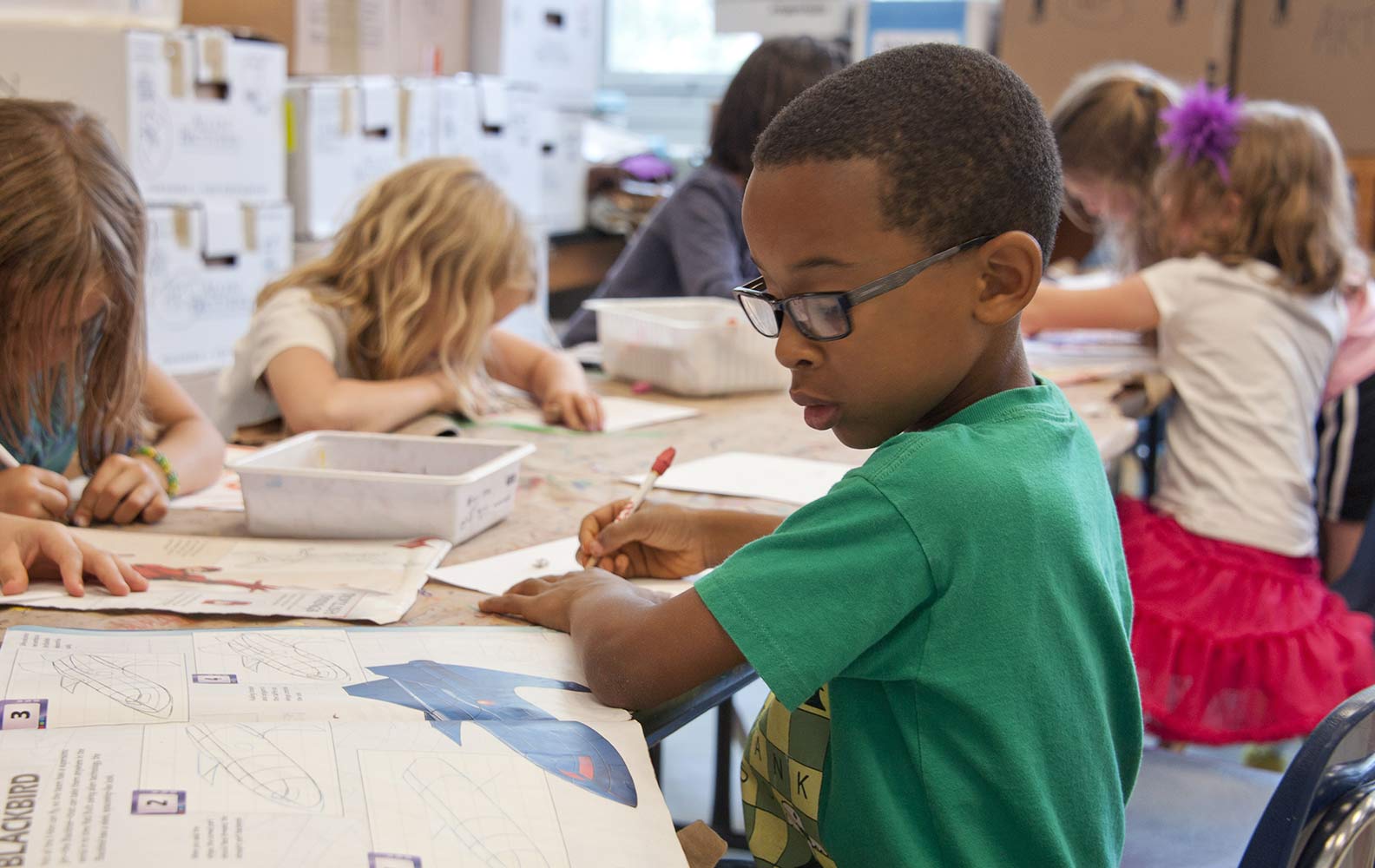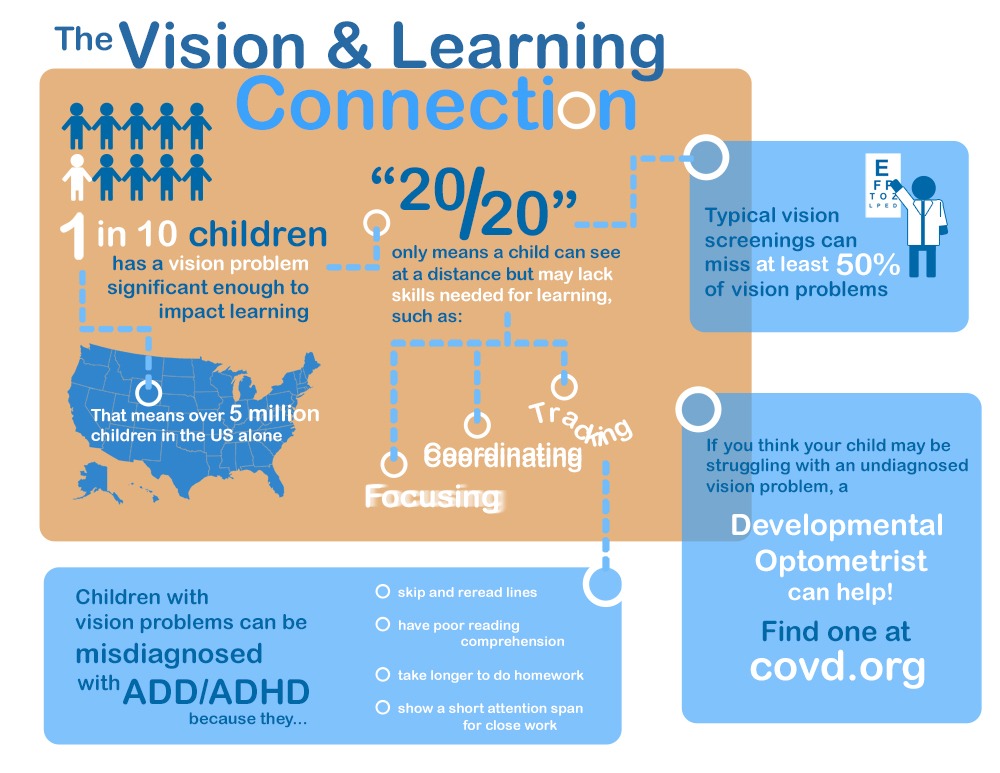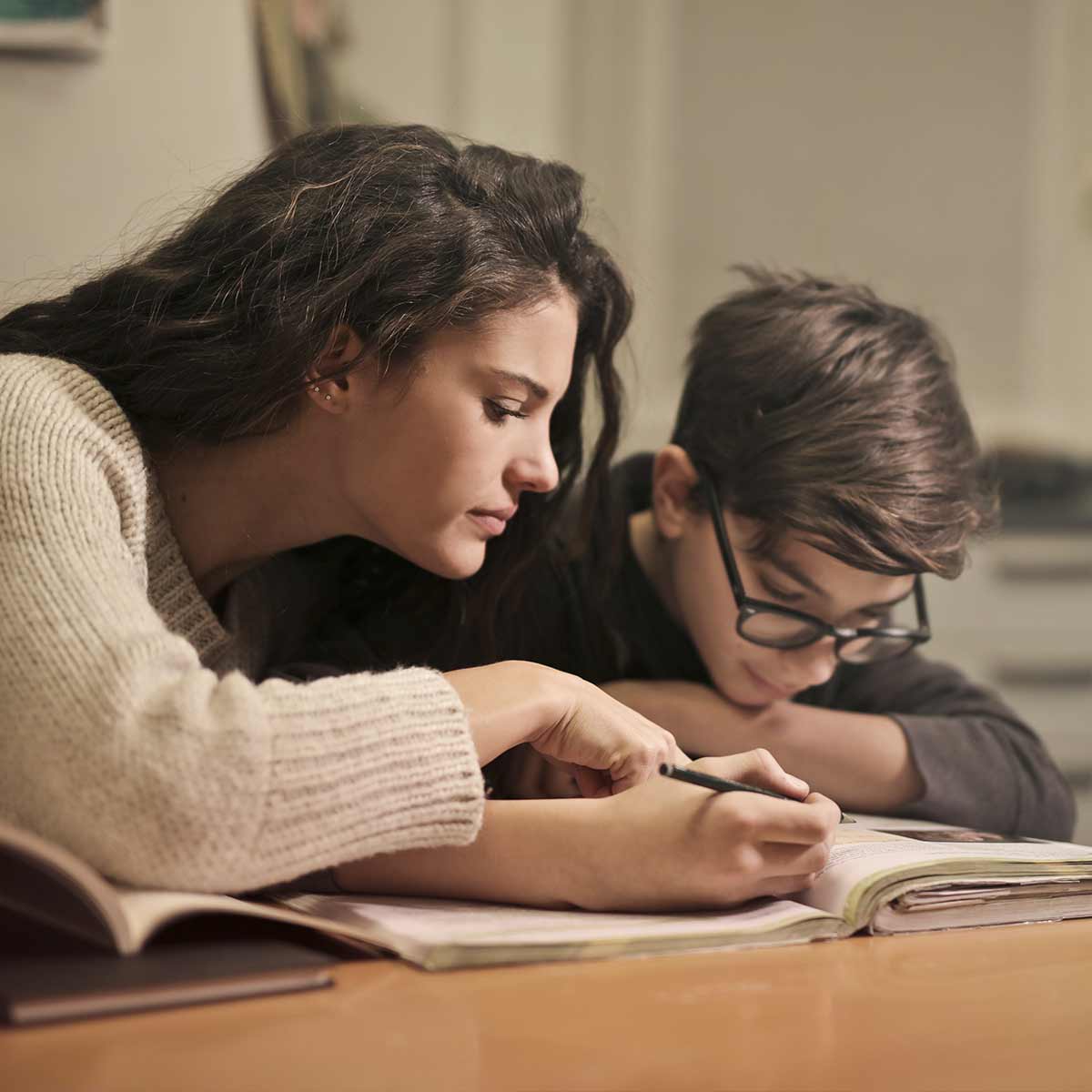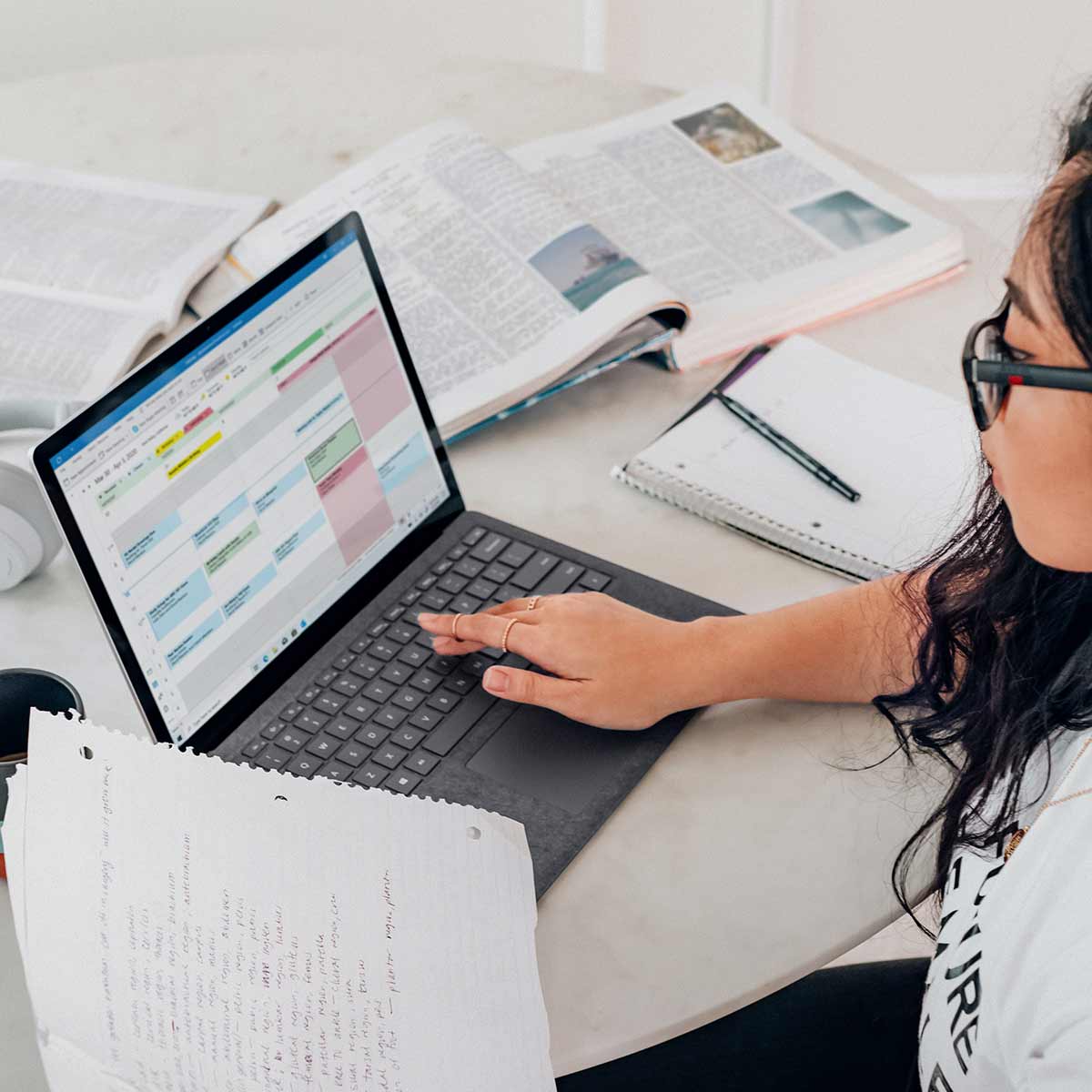
Vision and Learning
It is estimated that 80 percent of what a child learns comes through the visual system, and that behavior is strongly influenced by vision.

Thank you COVD (for the above graphic)
DO YOU OR YOUR CHILD HAVE AN UNDIAGNOSED VISION DISORDER?
Checklists of signs and symptoms involving visually based learning problems typically address performance problems.
Often there are difficulties in reading, writing, spelling and math. Taking notes and completing work, especially homework may take hours longer to complete than what the teacher/parent expect. It is understandable that this results in frustration and behavioral issues.
Many of these children are labelled or “mis-labelled” as having:
- Dyslexia
- Learning disabilities
- Slow learners
- Gifted 2E (twice exceptional)
- Poor behavior
- Lack of motivation
Any child with learning challenges should have a comprehensive evaluation (medical, academic, visual, auditory, sensory-motor, psychological) to rule out and treat underlying issues.

Do we treat or diagnose learning problems/disabilities, special needs, dyslexia, & Gifted 2E?
We thoroughly evaluate the visual system as it often can affect one’s ability to learn. Visual problems could cause difficulties in reading (losing place, skipping words, blurriness, headaches, fatigue, tired eyes, etc.), writing (difficulty with coloring, staying on the line), or in sports.
Even if the patient can see well, there may be other significant visual problems hindering one’s ability to learn.
To thoroughly diagnose learning disabilities or dyslexia, a full psycho-educational battery of testing and consultation must be given. Our doctors network and consult with other professionals, schools, hospitals and/or treatment centers.
What is Visual Processing?
Our visual system functions through interconnected pieces. The eyes are considered to be the “hardware component” of vision and the brain provides the processing and integration with other senses.
The patient not only needs to see, but he/she needs to understand, process, and respond to the visual information. Integration with other sensory systems including audition, motor, and balance is crucial for performance in life.
Many patients are told that their eyes are “perfect as they see 20/20.” Seeing a small letter at 20 feet away is only 1 of 17 visual skills necessary for school success.

Early Intervention
All eye doctors agree that the earlier a visual problem is detected and treated, the better the chances are of vision developing normal vision.
Normal development of the visual brain is as important as normal development of the eyes. Vision is a learned process.
If your child has an eye disease that requires treatment by an ophthalmologist, then certainly see an ophthalmologist. However, if your child is showing signs of visually related learning/behavior issues, then see a “Developmental or Behavioral” optometrist. The evaluation and treatment for the visual processing skills will be much more extensive and go beyond glasses and contact lenses.
Evaluation
The evaluation process is usually done in two different appointments followed by a consultation with one of the doctors.
The first appointment is: Comprehensive Vision Examination. Typically, the child or adult is scheduled for a Comprehensive Vision Examination to check eye health, need for glasses/contact lenses. A detailed history is taken.
The second appointment is: Developmental Visual Analysis (DVA).
- The DVA is comprised of a series of tests that are designed to identify strengths or weaknesses in the areas of visual motor integration, visual perception (including visual memory, form perception, visual discrimination, directionality/laterality, auditory/visual integration), perceptual motor abilities, auditory analysis screening, tracking and gross motor screening.
- A consultation (scheduled at a different time) with one of the doctors, the patient and/or the parents should be scheduled. At the consultation, options will be discussed as to whether vision therapy might be helpful or if a referral to another professional (such as tutor, psychologist, etc.) is appropriate.
Treatment
Lenses and prisms are often beneficial for our patients for seeing clearly, focusing, eye coordination, depth perception and visual motor skills.
Vision therapy is also extremely beneficial. Vision therapy has been in existence for over 75 years. Our doctors will be happy to supply you with information, efficacy studies, references, etc. on vision therapy. We are often requested to educate or discuss the therapy with other medical care providers or educators. In addition, we have a list of patients and other professionals who have been through our program and would be happy to discuss any of your questions.
